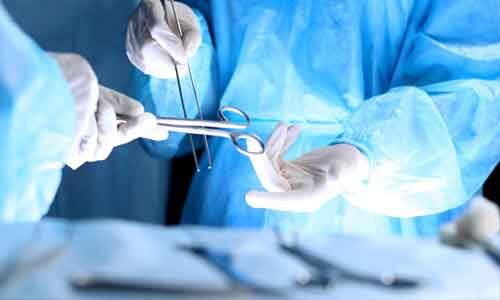- Home
- Medical news & Guidelines
- Anesthesiology
- Cardiology and CTVS
- Critical Care
- Dentistry
- Dermatology
- Diabetes and Endocrinology
- ENT
- Gastroenterology
- Medicine
- Nephrology
- Neurology
- Obstretics-Gynaecology
- Oncology
- Ophthalmology
- Orthopaedics
- Pediatrics-Neonatology
- Psychiatry
- Pulmonology
- Radiology
- Surgery
- Urology
- Laboratory Medicine
- Diet
- Nursing
- Paramedical
- Physiotherapy
- Health news
- Fact Check
- Bone Health Fact Check
- Brain Health Fact Check
- Cancer Related Fact Check
- Child Care Fact Check
- Dental and oral health fact check
- Diabetes and metabolic health fact check
- Diet and Nutrition Fact Check
- Eye and ENT Care Fact Check
- Fitness fact check
- Gut health fact check
- Heart health fact check
- Kidney health fact check
- Medical education fact check
- Men's health fact check
- Respiratory fact check
- Skin and hair care fact check
- Vaccine and Immunization fact check
- Women's health fact check
- AYUSH
- State News
- Andaman and Nicobar Islands
- Andhra Pradesh
- Arunachal Pradesh
- Assam
- Bihar
- Chandigarh
- Chattisgarh
- Dadra and Nagar Haveli
- Daman and Diu
- Delhi
- Goa
- Gujarat
- Haryana
- Himachal Pradesh
- Jammu & Kashmir
- Jharkhand
- Karnataka
- Kerala
- Ladakh
- Lakshadweep
- Madhya Pradesh
- Maharashtra
- Manipur
- Meghalaya
- Mizoram
- Nagaland
- Odisha
- Puducherry
- Punjab
- Rajasthan
- Sikkim
- Tamil Nadu
- Telangana
- Tripura
- Uttar Pradesh
- Uttrakhand
- West Bengal
- Medical Education
- Industry
Delhi Doctors treat rare ALCAPA syndrome on month-old baby

New Delhi: A team of doctors at Fortis Hospital, Shalimar Bagh performed lifesaving surgery on a month-old newborn baby to save him from a rare and complex congenital heart defect known as Anomalous left coronary artery from the pulmonary artery (ALCAPA) here recently. The baby, who weighed 2.5 kgs, was on a critical condition before he was operated by a team of doctors led by Dr. Dinesh Kumar Mittal, Director & Head, CTVS and Dr. Gaurav Garg, Senior Consultant, Pediatric Cardiology at Fortis Hospital, Shalimar Bagh.
This rare congenital heart defect (CHD), also known as Bland White Garland syndrome, is characterized when the left coronary artery, which carries blood to the heart muscle, begins from the pulmonary artery instead of aorta. The blood vessel which supplies blood to the heart muscle is not attached at its normal position. The condition remained undetected until it was presented to the doctors at Fortis Shalimar Bagh. After tests and closed evaluation, doctors concluded that the distressed baby was suffering from this rare condition. A detailed plan was drawn following close monitoring of the baby at Neonatal Intensive Care Unit (NICU) for a careful surgical intervention. The incidence of this condition is only 1 in 3,00,000 babies.
The complex procedure on a newborn involved putting the baby on cardiopulmonary bypass machine, division of the Pulmonary Artery, harvesting of the left coronary which was then implanted into the ascending Aorta. The baby's heart responded well to this line of treatment. The fighter baby was out of the ventilator within a day of the operation. With post-operative care at the hospital, the baby soon was healthy enough to be discharged from the hospital.
Speaking about the case, Dr Dinesh Kumar Mittal said, "Surgeries on a newborn are complex as the organs are very small. The biggest challenge for us post-operation was that the baby's heart function was very low (EF-20-25%). But the child responded well. He was weaned out of the ventilator on the second post-op day and was discharged on the 8th post-op day. Before discharge, his Echo showed improved heart function (EF-40%). These types of congenital heart disease are very challenging and require a dedicated team approach which includes specialists such as a Pediatric Cardiac surgeon, Pediatric Cardiologist, Pediatric Cardiac Intensivist and Anesthetist."
In the normal heart, the left coronary artery originates from the aorta. It supplies oxygen-rich blood to the heart muscle on the left side of the heart as well as the mitral valve (the heart valve between the upper and lower chambers of the heart on the left side). The aorta is the major blood vessel that takes oxygen-rich blood from the heart to the rest of the body. In children with ALCAPA, the LCA originates from the pulmonary artery, which is the major blood vessel that takes oxygen-deficient blood from the heart to the lungs to pick up oxygen. Of all CHDs, the ALCAPA is detected in only 0.2-0.4% such children, making it one of rarest.
Talking about the rare condition of ALCAPA, Dr Gaurav Garg said, "Diagnosis of ALCAPA is very difficult & is often missed even by most skilled Echo Cardiographer. If this disease is not diagnosed & treated in time, then most of the children do not see their first birthday. Treating these kids is also very high-risk procedure & requires highest level of skills & dedication & often end up using ECMO support which is available at very few centers in Delhi."
Hina Zahid Joined Medical Dialogue in 2017 with a passion to work as a Reporter. She coordinates with various national and international journals and association and covers all the stories related to Medical guidelines, Medical Journals, rare medical surgeries as well as all the updates in the medical field. Email: editorial@medicaldialogues.in. Contact no. 011-43720751
Dr Kamal Kant Kohli-MBBS, DTCD- a chest specialist with more than 30 years of practice and a flair for writing clinical articles, Dr Kamal Kant Kohli joined Medical Dialogues as a Chief Editor of Medical News. Besides writing articles, as an editor, he proofreads and verifies all the medical content published on Medical Dialogues including those coming from journals, studies,medical conferences,guidelines etc. Email: drkohli@medicaldialogues.in. Contact no. 011-43720751


